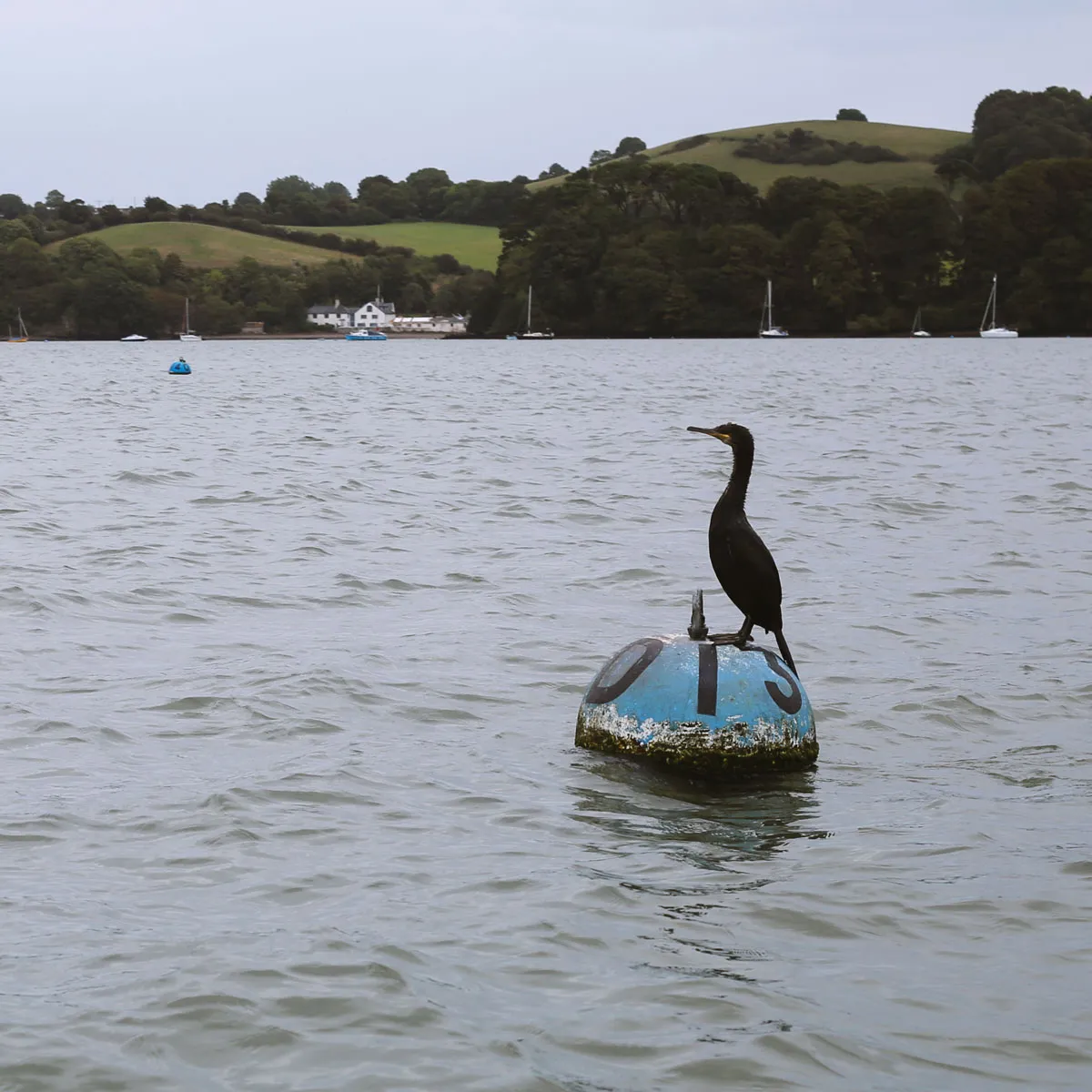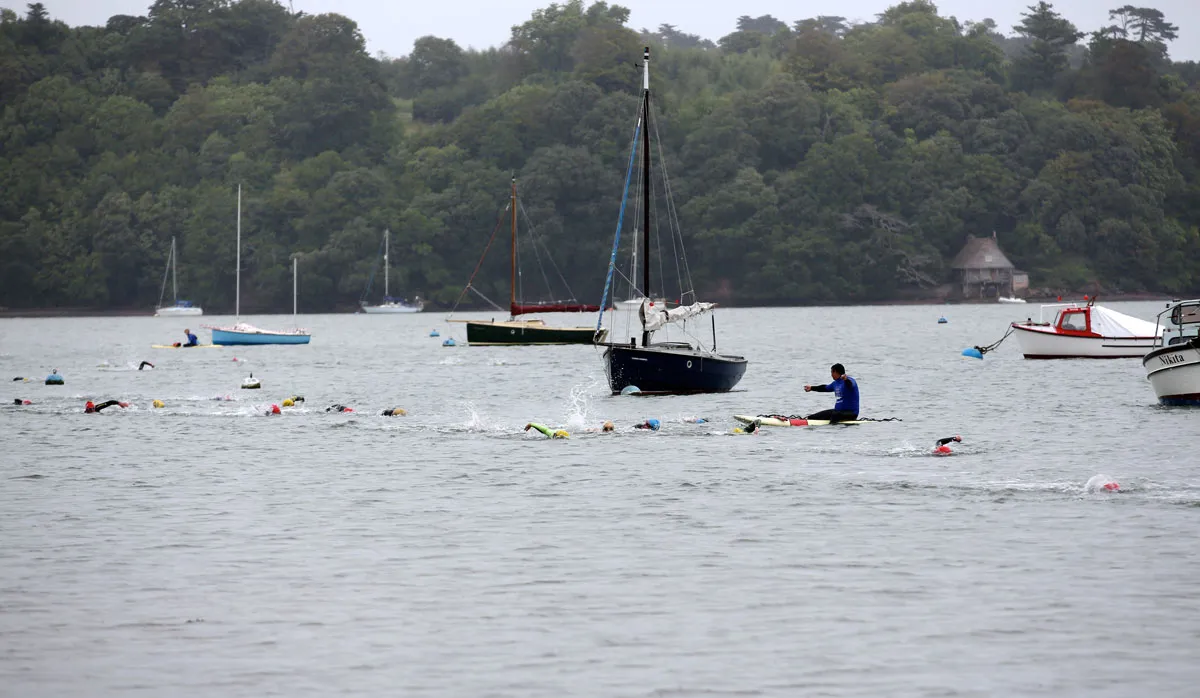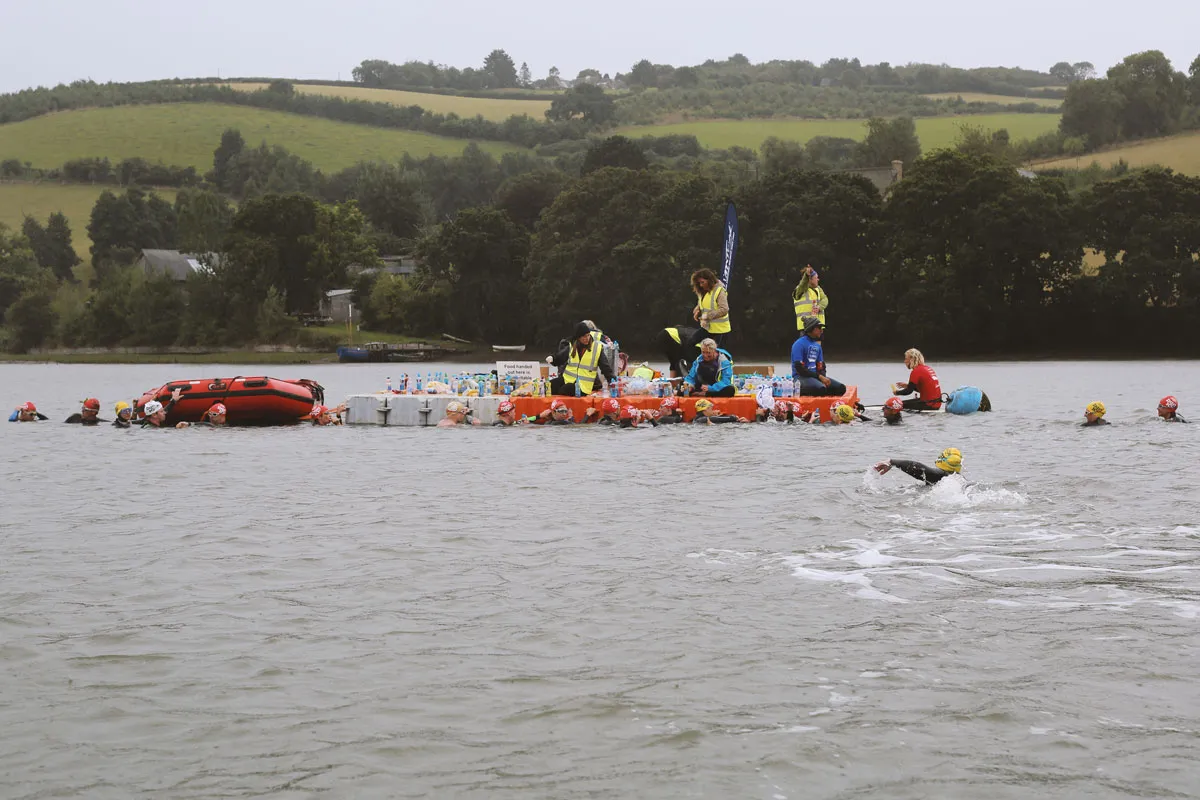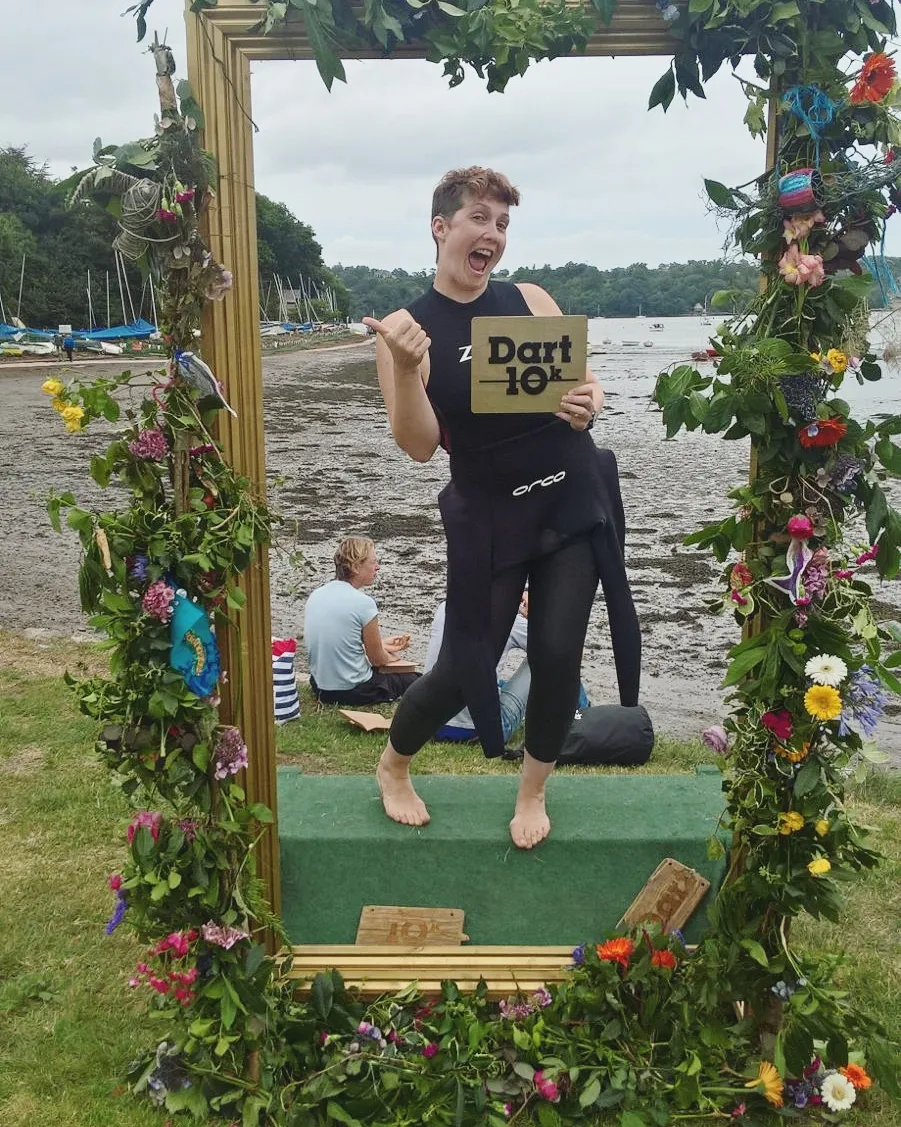Writing this now, a few days later, I can’t quite believe I’ve swum the Dart 10k. When I bought my ticket in February a six mile swim in a wild river seemed perfectly possible. But standing on the bank, about to take my first stroke, I wasn’t so sure.
The Dart 10k is the London marathon of the swimming world. Staged for the last seven years by the Outdoor Swimming Society, this year 1,600 entrants faced down the mighty River Dart, in places a mile wide and with all the chop and salt of the not too distant sea it feeds. The course runs from Steamer Quay at Totnes to Dittisham Harbour, passing through the South Devon Area of Outstanding Natural Beauty. It is a bird-watching paradise, populated by buzzards, osprey, egrets, cormorants, guillemots and gannets, who fish by diving from great heights more gracefully than any Olympian.

The native otters, once virtually wiped out by river pollution, are back, although tricky to spot. Seals are seen further down from Dittisham towards Dartmouth itself, where porpoises tease the boats in the estuary. Fishing is popular on the Dart, but the brown trout and salmon tend not to hang around when there are hundreds of swimmers in the water, and the wildlife was definitely hiding from me on Sunday morning.
Near the start of the course is a dead tree where cormorants, skilled swimmers themselves, like to perch. The graceful birds are seen as lucky by some, a symbol of resilience. I was desperate to spot one, but there was no sign of life as I passed the landmark. Heavy overnight rain had pushed the water down to a chilly 16c and the lack of birds felt like a bad omen. I wasn’t off to the best start.

But I knew I would feel panicky at the beginning. I knew it would take a good 2km before I really hit my stride. I knew the claustrophobia from the murky water would pass. All these things stopped me from leaping back out of the water when my instincts were telling me to do just that. A wide river seems more like an ocean when you’re in it, and the sharp bends meant judging distance and speed was tricky. Reaching the 4km feed station in under an hour confirmed my hope, that the spring tide and rain were making the river run fast, and I felt strong as I pushed off after a handful of jelly babies and some Lucozade.

Then we hit the ‘debris’ section we’d been warned about. Holly leaves and weeds in the water were punctuated with the occasional sturdy branch, and I saw one unfortunate swimmer go headfirst into what looked like a half-submerged tree.
Salt was numbing my mouth and the sugar rush from my snacks was fading fast. As the miles started to take their toll, the details of the lengthy safety briefing came flooding back. I did not want to be extracted by a lifeguard, or leap-frogged upstream for being too slow. I steeled myself for the slog ahead and ploughed on.
Red-hatted swimmers began to pass me in droves. These were the ‘medium’ wave, who’d left 15 minutes later than us ‘leisurely’ yellow hats. Being lapped never feels good, but I ignored my wounded pride, listened to the beeps of my pace clock and maintained a steady speed. This section was choppier and every now and then what looked like a barrel jellyfish rolled under me. It could have been a carrier bag, or even my imagination, but it wasn’t really helping. When the second feed station appeared at 8km I was well past ready for it. The swimmer next to me clung to the pontoon complaining of cold, so I offered up a hug to help warm her up. “I can do it, can’t I?” she asked, seeming genuinely worried. She looked tired, and I wasn’t sure, but I wasn’t about to tell her that. “Of course you can, we can do it!”
I pushed off, with ‘just’ 2.5km to go. A year ago that was the furthest I’d ever swum. A year ago even a mile seemed a big deal. I filed that under ‘Do not think about’, and slurped down an energy gel on top of my recent snack.
The water grew murkier still. I narrowly missed an enormous patch of weeds, clocking it just in time to make a sharp turn, and closed my mouth to avoid the particles of (hopefully) mud flying towards me underwater. I rounded the final bend and spotted Dittisham in the distance. I swam on, shoulders singing, but it seemed to come no closer. I asked a paddleboarder how much was left. “Two, three hundred metres maybe”, he lied. If he’d said five hundred metres, which is what it turned out to be, I might have given up.
A flock of migrating geese swirled above me in V formation. Finally the omen I’d been looking for. Renewed, I crawled the last few silty metres into Dittisham harbour, where the Saxons had invaded nearly 1500 years ago, and stood up when it was too shallow to swim. I didn’t exactly feel like a Saxon conqueror, but I had beaten the River Dart. I had swum the Dart 10k. I needed a little lie down.

Get more:
Tickets for the Dart 10k are released in January or February, with plenty of warning on the Outdoor Swimming Society Facebook page. They sell out very quickly, this year in a matter of hours. You need to be an OSS member to enter, but it is free to join.
Waterlog (Vintage, 2000), by the late Roger Deakin, tells of the nature writer’s wild swimming adventures across the UK, including on the River Dart, and is a feast of inspiration for any wild swimmer. You can read more about Deakin here
Main image credit: OSS, Anna Barclay

